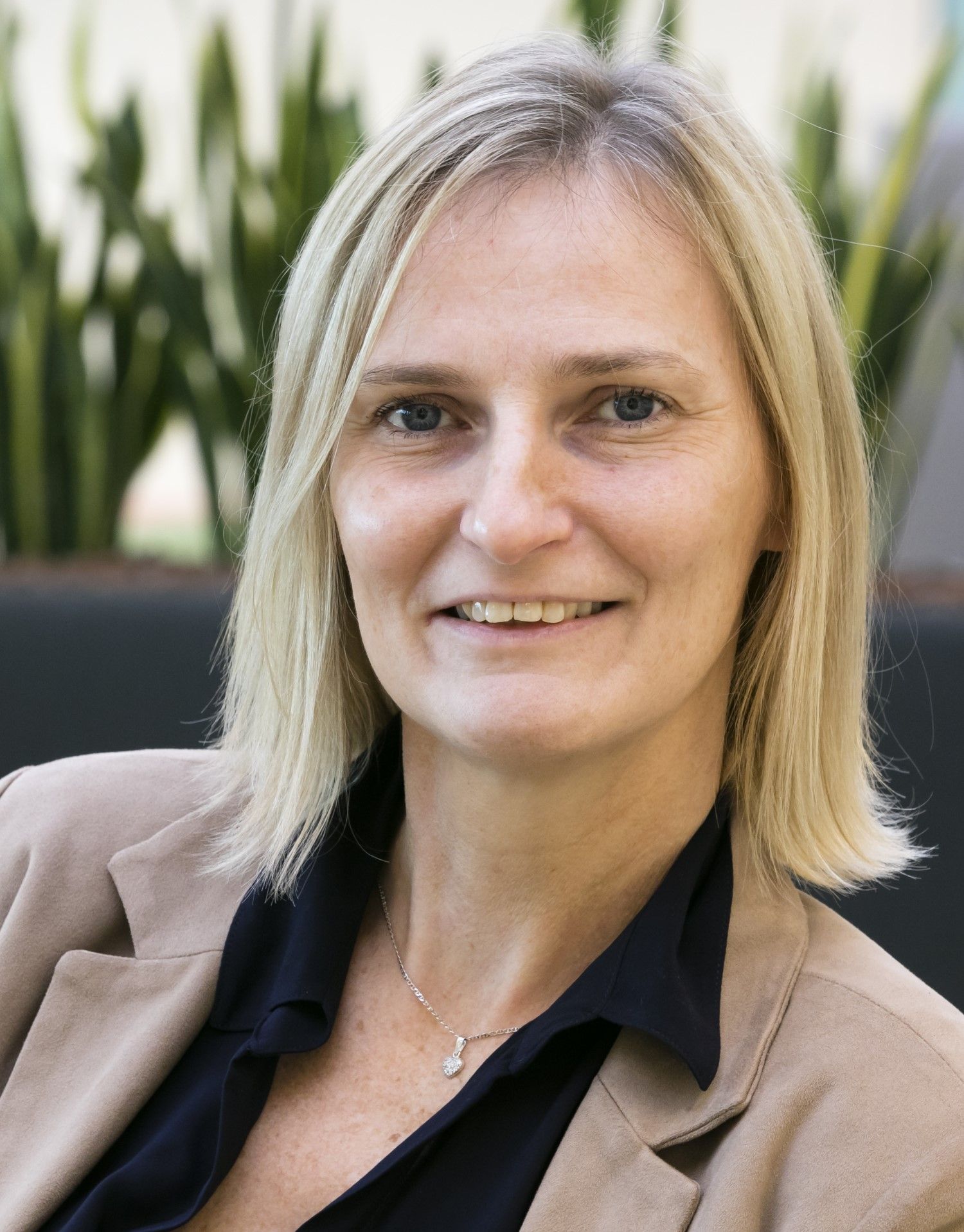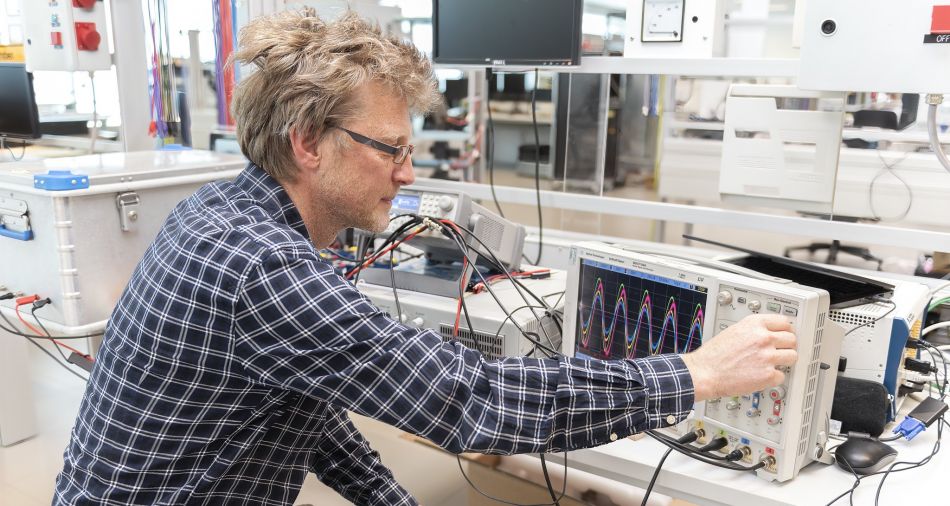Developers of products or systems powered by batteries, or of equipment for heating and cooling, for example, can turn to VITO/EnergyVille for a wide range of tests that meet all their possible questions and needs. What is unique about both the battery test and the thermal engineering lab is that they both create very dynamic environments that are closely linked to real world scenarios. This sets them apart from standard laboratories.
Expansion lab facilities
The commissioning of the new EnergyVille 1 research building in 2016 also marked the start of the relocation of two labs from the VITO site in Mol to that of EnergyVille in Genk. The move was also accompanied by a substantial expansion of the lab facilities, and as a result that operation has only recently been fully completed. 'Our battery test lab, for example, has doubled in size,' says Ann Wouters of VITO/EnergyVille. ‘We have also added many new test instruments, such as a new battery tester, a larger temperature chamber and an ARC (accelerated rate calorimeter) device that is unique in our country.' The ARC device tests, among other things, the thermal behaviour of battery cells and modules, as well as their resistance to fire and explosions.
Larger and more capacity
The thermotechnical laboratory has changed beyond recognition in comparison with the former facility in Mol. ‘There, we had a lab that was much smaller and mainly focused on in-house research,' says Nico Robeyn of VITO/EnergyVille. ‘Whereas we only had one HVAC connection at the time, we now have 25 in parallel. So, depending on the size of the equipment to be tested, we can now in principle carry out 25 different tests simultaneously.' In the thermotechnical laboratory, heating and cooling equipment is tested, among other things, where temperatures can be reached between 5 and 90 degrees (without the use of thermal oil) and even up to 300 degrees with the use of thermal oil. ‘This gives us a total lab capacity of 2 megawatts.'
The VITO/EnergyVille battery testing laboratory is usually very busy. In addition to its own researchers, the lab is also available to external companies and other research organisations. For example, companies developing products or systems powered by batteries can use it for performance, service life and safety tests. ‘What we often do, for example, are ageing tests on newly developed battery types,' says Filip Leemans of VITO/EnergyVille. ‘This is done, for example, in a temperature chamber where the influence of very different and fluctuating weather conditions on battery performance is examined.' In order to test these conditions even more thoroughly, VITO/EnergyVille had a more extensive temperature chamber installed in 2020 (larger in size but also in temperature range). The chamber is, for example, large enough to test complete car batteries.
No standard lab
Simulating as closely as possible the environments to which batteries and devices can be exposed in real world conditions is one of the major USPs of VITO/EnergyVille's lab facilities. Wouters: 'It sets us apart from many other labs where it is often more about accreditation than testing in which we simulate the real world conditions as closely as possible. We study various heat and cold profiles, day and night effects, seasonal variations, you name it - and all this in an accelerated test rhythm. We are thus definitely not a standard laboratory where work is carried out in a static environment according to set standards and fixed specification limits.' The customers of VITO/EnergyVille can only benefit from this. ‘Thanks to our highly dynamic working methods, in which we deliberately introduce variations into the test environment, our customers learn how their products and systems really perform.’
Customers are also closely assisted by the various expert teams of VITO/EnergyVille. ‘Larger companies or organisations with their own R&D department usually bring their own test protocols, and for smaller companies, we often help them draw these up,' says Robeyn. ‘And we also give proactive advice, for example in the form of possible improvements to prototypes after we have tested them.' In recent years, both SMEs and larger companies have called on the two test labs. ‘In the past, we mainly reached SMEs, but for a few years now, even larger companies have been approaching us on a regular basis (see box). They clearly appreciate our state-of-the-art technology, our dynamic test environment and also the advice of our researchers.’
That advice is not limited to just dry test results. ‘We also give our customers our interpretation of the results,' says Wouters. Sometimes, we even intervene proactively before a test starts. ‘From time to time, research questions are not clearly defined or we establish that the requested objective is not achievable when a prototype is delivered. In those cases, too, we provide timely feedback. In addition, customers can also call on the non-technical expertise of VITO/EnergyVille, such as that in economic modelling. ‘Our strength is that we can bring together many different techniques and approaches.'
Currently, the two test labs are also being integrated into the oPEN Thor Living Lab, a test zone on and around the Genk Thor site where innovative energy solutions will be developed, tested and validated in the coming years, and this in close interaction with the entire energy system. In both labs, new technologies will be extensively tested before being linked to the other systems within the living lab.
Multinationals call on test labs
One of the multinationals that has already had its innovative technology tested at VITO/EnergyVille is Atlas Copco, which makes compressors, generators and (vacuum) pump systems. ‘For the further development of our ORCs (organic rankine cycles, thermodynamic processes which are used in turbines, among other things), we called on VITO/EnergyVille to test our prototypes extensively,' says Christophe Gregoir, engineering team leader at Atlas Copco. ‘The thermotechnical lab, where different heat and cold flows can be regulated, has helped us further develop our products.'
According to Gregoir, working with VITO/EnergyVille was a pleasure, partly because both organisations feel strongly about sustainability. ‘Cooperation on the work floor went smoothly, and special thanks go to the people in the lab, who were always quick and flexible in helping us, and respected the confidentiality of our projects. As such, we were able to take an important step in the development of sustainable products for our customers.’
By improving their ORCs, Atlas Copco aims, among other things, to increase the energy efficiency of its compressors. By doing so, the company wants to help its customers develop sustainable productivity.
---
In May 2018, global manufacturing company Jabil contacted VITO/EnergyVille to collaborate on a project for Philips related to the testing battery modules. “After an interactive scoping phase with VITO/EnergyVille’s battery experts, we have engaged in a project in September 2018. About a year later, the test protocol for all the devices was finalized, and, in October 2019, the final results were presented to both Jabil and Philips within the confidentiality conditions of that collaboration.
Our motivation to work with VITO/EnergyVille came from the professional approach. The battery experts were looking pro-actively in problem solving and also suggesting further product improvements. Adding VITO/EnergyVille’s quality flow, their safety procedures in the lab, and the yearly calibration of the testing equipment, that all, made the difference, especially when you look for a long term partnership.
To conclude, Philips and we were very satisfied of the collaboration with VITO/EnergyVille on the project and we recommend to anybody looking for battery testing to engage with VITO/EnergyVille and their battery lab team.”
Vital Driesen (Business Development Manager, Jabil





